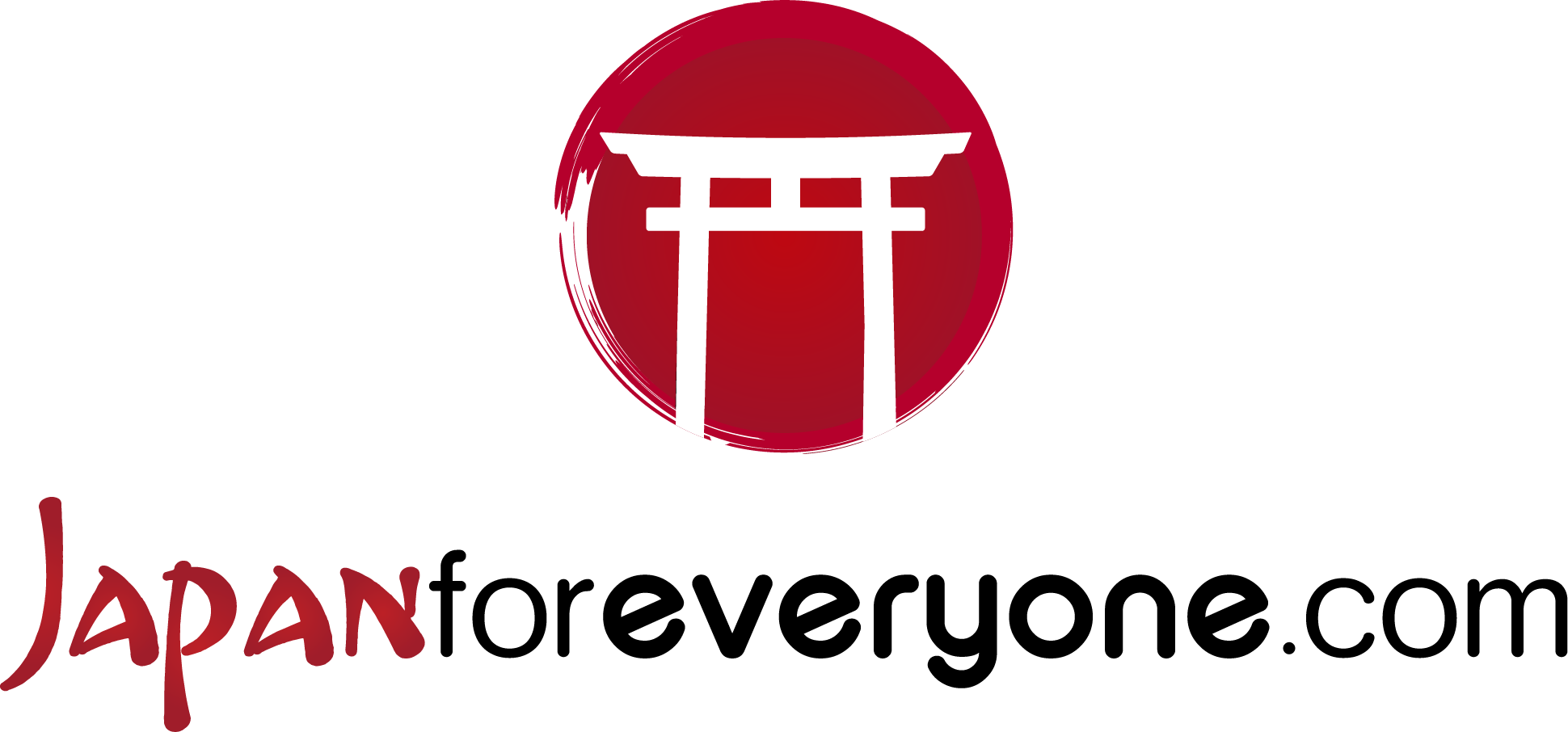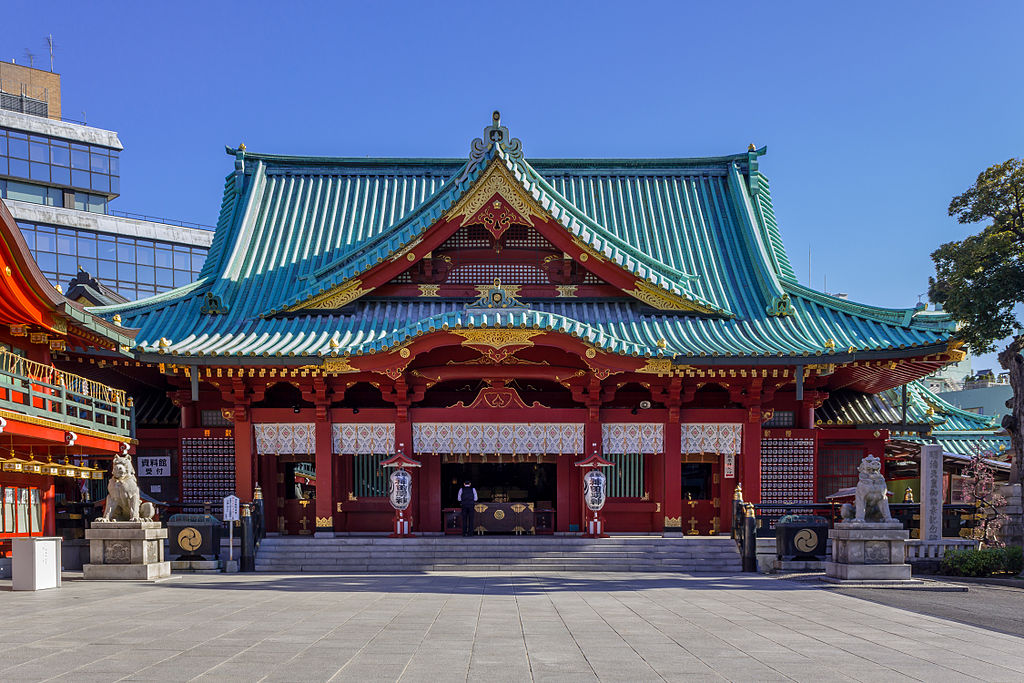What to do in Akihabara
Akihabara is famous for its countless electronic and otaku shops, where you can find manga, anime, video games and much more. In addition, there are the famous Maid Cafés, where you are served by waitresses dressed as governesses.
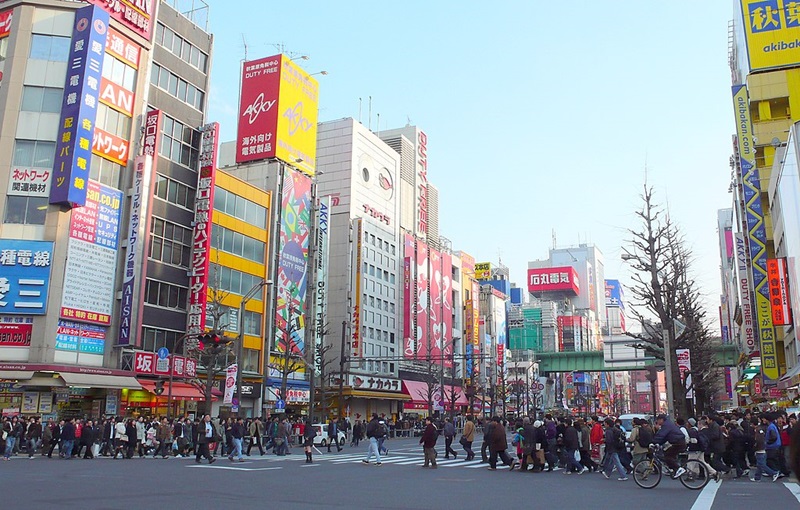
Jmho, CC0, via Wikimedia Commons
How to get to Akihabara
To get to Akihabara you can use the underground, the Yamanote Line and the Sobu Line.
If you are coming from Ueno or Shimbashi take the Yamanote Line and get off at Akihabara station. If you are coming from Shinjuku, take the Sobu Line (yellow trains) which crosses the city from east to west and get off at Akihabara station. Underground lines passing through Akihabara are the Hibiya Line (H15 Akihabara – Tokyo Metro) and the Shinjuku Line (S08 Iwamotocho – Toei).
To get to Ochanomizu take the JR train of the Sobu Line from Akihabara or Shinjuku or the Chuo Line from Tokyo Station and Shinjuku. Underground lines passing through Ochanomizu are the Marunouchi Line (M20 Ochanomizu – Tokyo Metro) and the Chiyoda Line (C12 Shin-Ochanomizu – Tokyo Metro).
Kanda Myojin Shrine
The Kanda Myojin Shrine is one of the oldest and most important shrines in Tokyo. Located in the Chiyoda district, it is dedicated to the Shinto deity of prosperity, success and victory. With its majestic towers and traditional design, the shrine offers a peaceful and sacred atmosphere amidst the chaos of the city. It is a popular place to pray for good luck and success in business, attracting visitors from all over Japan and beyond.
Kakidai, CC BY-SA 3.0, via Wikimedia Commons
Practical information
| View location on Google Maps | |
| Official website |
|
| Always open | |
| No closing days | |
| Free | |
| 5 minutes’ walk north of Ochanomizu station (M20) 5 minutes’ walk north from JR Ochanomizu Station |
Yushima Seido
Yushima Seido is an ancient Confucian temple located in the Bunkyo district of Tokyo. Built in 1630, it is one of the main sites of Confucian study in Japan. With its elegant architecture and tranquil garden, the temple offers a place for reflection and contemplation. It is also famous for its magnificent annual festival, during which performances of music, dance and traditional arts are held. Yushima Seido is a place of culture and spirituality in the heart of Tokyo.
Ocdp, CC0, via Wikimedia Commons
Practical information
| View location on Google Maps | |
| Official website |
|
| 9:30-17:00 (until 16:00 in winter) | |
| 13 to 17 August 29 to 31 December |
|
| Free (200 Yen to enter the main building on weekends only) | |
| 2 minutes’ walk north of Ochanomizu station (M20) 2 minutes’ walk north from JR Ochanomizu Station |
Nicholai-do
Nicholai-do, also known as the International Christian University, is a historic church located in the Chiyoda district of Tokyo. Built in 1891, it was the first Christian church in Japan to be built with bricks. It has been rebuilt numerous times, but still retains its original structure. With its Gothic design and quiet atmosphere, Nicholai-do is a must-see place for those seeking a spiritual break from the hustle and bustle of Tokyo.
Wiiii, CC BY-SA 3.0, via Wikimedia Commons
Practical information
| View location on Google Maps | |
| Official website |
|
| 13:00-15:30 (April to September until 16:00) | |
| Some irregular closing days | |
| Donation of at least 300 Yen | |
| 2 minutes’ walk west of Shin-Ochanomizu stop (C12) 5 minutes’ walk south of Ochanomizu Station (M20) 5 minutes’ walk south of JR Ochanomizu Station |
The Koishikawa Korakuen Garden is a hidden gem in the heart of Tokyo. Located in the Bunkyo district, this beautiful Japanese garden dates back to 1629. Featuring ponds, bridges, waterfalls and stone lanterns, it is an oasis of tranquillity and beauty. The garden offers spectacular views during all seasons, with cherry blossom in spring and autumn leaves colouring the landscape. The Koishikawa Korakuen is a perfect place to relax and immerse yourself in nature in the midst of the bustling city of Tokyo.
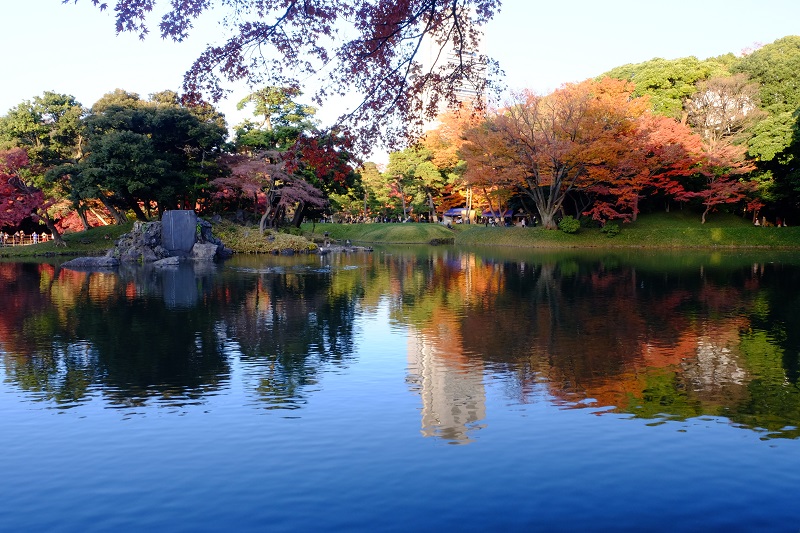
Photo by Japanforeveryone.com
Practical information
| View location on Google Maps | |
| Official page |
|
| 9:00-17:00 Last entry 30 minutes before closing time |
|
| 29 December to 1 January | |
| 300 Yen | |
| 5 minutes’ walk south-west of Korakuen metro station (N11 – M22) |
Yasukuni Shrine
Yasukuni Shrine, or Yasukuni Jinja, is an important Japanese holy site located in the Chiyoda district of Tokyo. Built in 1869, the shrine is dedicated to those who lost their lives in the service of the Emperor during the country’s history. The shrine is surrounded by a series of beautiful gardens and is a place of prayer and reflection for devout Japanese. However, its politically controversial history and visits by nationalist leaders also make it a place of confrontation and debate.
Leonard V Carlson User:Picturetokyo, Public domain, via Wikimedia Commons
Practical information
| View location on Google Maps | |
| Official website |
|
| Shrine | |
| 6:00-18:00 6:00-17:00 (November to February) |
|
| No closing days | |
| Free | |
| Yushukan Museum | |
| 9:00-16:30 (last entry at 16:00) 12:00-16:30 (holiday at the beginning of the year) 9:00-21:00 (during the Mitama Matsuri from 13 to 16 July) |
|
| Some closing days at the end of June and end of December | |
| 1000 Yen | |
| 11 minutes’ walk west of Kudanshita underground station (S05 – Z06 – T07) 14 minutes’ walk east of Ichigaya underground station (S04 – Y14 – N09) 14 minutes’ walk south of Iidabashi underground station (E06 – T06 – Y13 – N10) or JR Iidabashi station (yellow trains) |
Tokyo Dome City
Tokyo Dome City is an entertainment complex located in the Bunkyo district of Tokyo. At its centre is the famous Tokyo Dome, a multifunctional stadium that hosts concerts, sporting events and baseball games. But the fun does not end there. Tokyo Dome City also includes an amusement park with several attractions, a shopping centre, a hotel and a variety of restaurants and bars. It is a place of leisure and entertainment for people of all ages, offering a unique experience in the heart of the Japanese capital.
Lucas Garron, CC0, via Wikimedia Commons
Practical information
| View location on Google Maps | |
| Official website |
|
| LaQua | |
| Official website |
|
| 11:00-9:00 of the next day | |
| 29 December to 2 January Some days during the year for maintenance |
|
| 2900 Yen (2090 Yen from 6 to 17) 350 Yen extra on weekends and public holidays 1980 Yen extra from 1am to 6am |
|
| Tokyo Dome City Attractions | |
| 10:00-21:00 | |
| No closing days | |
| 4200 Yen (adult day pass, discounts for minors and over 60s) 3200 Yen (night pass from 5pm adults, discounts for minors and over 60s) It is possible to pay for the various attractions individually |
|
| 7 minutes’ walk north of JR Suidobashi station on the Sobu Line (yellow trains) 2 minutes’ walk south of Korakuen underground station (M22 – N11 – I12 – E07) 5 minutes’ walk west of Suidobashi underground station (I11) |
Bunkyo Civic Center
The Bunkyo Civic Centre is a major landmark in Tokyo’s Bunkyo district. This imposing 25-storey building offers a breathtaking panoramic view of the city. It houses government offices, a public library and a tourist information centre. Visitors can enjoy a spectacular view of the Tokyo Skyline from its free observation deck. The Bunkyo Civic Centre is a must-see attraction for those who want to admire the beauty of Tokyo from above.
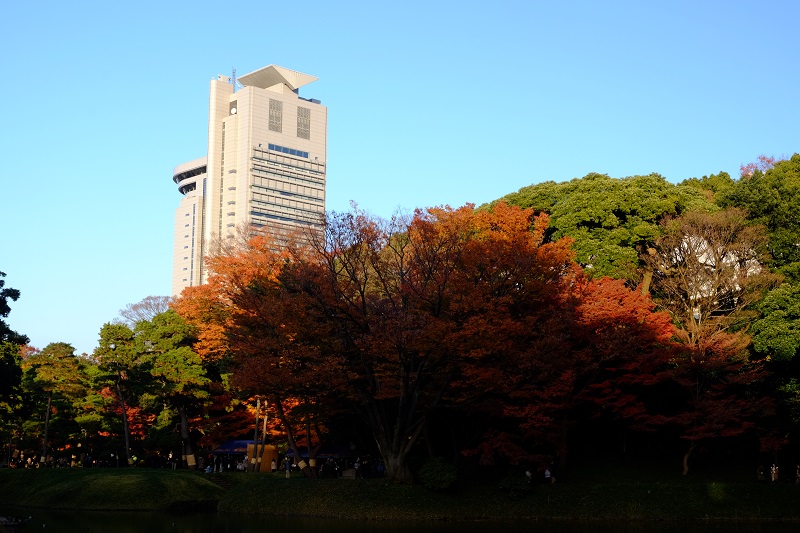
Photo by Japanforeveryone.com
Practical information
| View location on Google Maps | |
| Official website |
|
| 9:00-20:30 | |
| Third Sunday in May 29 December to 3 January |
|
| Free | |
| 7 minutes’ walk north of JR Suidobashi station on the Sobu Line (yellow trains) 2 minutes’ walk south of Korakuen underground station (M22 – N11 – I12 – E07) |
Sofmap
Sofmap in Akihabara is a popular electronics shop and technology sales area in Tokyo’s Akihabara district. With several floors dedicated to a wide selection of products, Sofmap offers a wide variety of electronic devices, gadgets, video games, computers, components and accessories. It is a popular attraction for technology enthusiasts and visitors looking for the latest electronic products. Sofmap Akihabara is an exciting place to explore the latest trends and discover the best technology products available on the market.
Tokumeigakarinoaoshima, CC0, via Wikimedia Commons
Practical information
| View location on Google Maps | |
| Official website |
|
| 10:00-21:00 | |
| No closing days |
Akky
Akky specialises in duty free and operates three shops around Akihabara Station. Akky sells a wide range of electronic equipment for use abroad, including cameras, computers, televisions, DVD players and software. Some shops sell second-hand items.
Practical information
| View location on Google Maps | |
| Official website |
|
| 9:00-20:00 | |
| No closing days |
Radio Kaikan
Radio Kaikan in Akihabara is an iconic structure in Tokyo’s video game and electronics district. Known as the ‘temple of otaku culture’, Radio Kaikan is a multi-storey building filled with shops specialising in manga, anime, video games, merchandise and related products. Japanese pop culture fans will find a wide range of collectibles, cosplay, models and more here. Radio Kaikan is a must-see for fans wishing to immerse themselves in Akihabara’s otaku subculture.
street viewer, CC BY 2.0, via Wikimedia Commons
Practical information
| View location on Google Maps | |
| Official website |
|
| 10:00-20:00 | |
| Varies by shop |
Yodobashi Camera
Yodobashi Camera in Akihabara is a huge electronics and technology shop in the heart of Tokyo. With several floors full of products, it offers a wide selection of mobile phones, computers, cameras, home appliances and much more. It is renowned for its competitive prices and wide range of brands available. In addition, Yodobashi Camera also boasts a department of enthusiast toys, books and a variety of entertainment products. It is a paradise for technologists and gadget enthusiasts.
正和, CC BY-SA 4.0, via Wikimedia Commons
Practical information
| View location on Google Maps | |
| Official website |
|
| 9:30-22:00 Restaurants: 11:00-23:00 |
|
| No closing days |
Maid Cafes
The Maid Cafes in Akihabara are a particular attraction in Tokyo’s electronic district. These unique cafés offer an unusual experience, with waitresses dressed as Japanese maids. The waitresses dedicate themselves to serving customers with kindness and grace, creating a charming and playful atmosphere. In addition to lively interactions with the waitresses, customers can enjoy delicious meals and drinks. Maid Cafes have become an icon of Akihabara, attracting both locals and tourists eager to try this unique experience.
BreakdownDiode, CC BY-SA 3.0, via Wikimedia Commons
Don Quijote
Don Quijote in Akihabara is a department store known for its wide selection of products at affordable prices. Also known as ‘Donki’, it is the ideal place for shoppers looking for a variety of items, including electronics, food, clothing, souvenirs and gifts. Don Quijote offers a unique and fun shopping experience with its bright colours, neon lights and crowded aisles. It is a must for multi-purpose shopping in Akihabara.
The Akihabara shop is home to the young pop group AKB48, who play shows every day in the theatre on the 8th floor of the shop (ticket price 3000 Yen). There is also the Maid Cafe @Home Cafe and is located on the 5th floor.
Aoaoaoyama, CC BY-SA 3.0, via Wikimedia Commons
Practical information
| View location on Google Maps | |
| Official website |
|
| 9:00-5:00 | |
| No closing days |
Super Potato
Super Potato in Akihabara is a nostalgic paradise for retro game lovers. This shop is famous for its extensive collection of vintage games, consoles and accessories. From the 1980s and 1990s, Super Potato offers a curated selection of classic and rare titles, ranging from Nintendo consoles to arcade games. Besides games, the shop also boasts a wide range of merchandise and collectables. It is a true paradise for fans of retro video games who want to relive the good old days.
JoshBerglund19 from United States, CC BY 2.0, via Wikimedia Commons
Practical information
| View location on Google Maps | |
| Official website |
|
| 11:00-20:00 (from 10:00 on weekends and holidays) | |
| No closing days |
Gamers
Gamers in Akihabara is a department store specialising in electronic merchandising and products related to Japanese comics and animation. With several floors dedicated to games, figures and gadgets, Gamers is the perfect place for anime fans. It offers a wide selection of products from popular series such as Naruto, One Piece and Pokemon. In addition, you can find a wide range of cosplay items and a large selection of anime books, manga and DVDs. Gamers is one of the flagship shops in Akihabara for fans of Japanese pop cultures.
Practical information
| View location on Google Maps | |
| Official website |
|
| 9:00-22:00 (upper floors 11:00-21:00) | |
| No closing days |
Mandarake
Mandarake in Akihabara is one of the most internationally known Japanese manga and anime shops. The shop offers a wide selection of manga books, anime DVDs, epoch-making Japanese robots, action figures, video games and related products in various rooms on different floors of its building. Mandarake is also famous for its limited and rare editions, perfect for collectors. In addition, it hosts manga- and anime-themed events and exhibitions for avid visitors.
street viewer, CC BY 2.0, via Wikimedia Commons
Practical information
| View location on Google Maps | |
| Official website |
|
| 12:00-20:00 | |
| No closing days |
